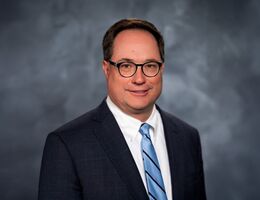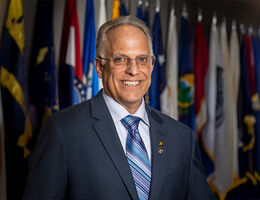

Loma Linda University Schools of Behavioral Health and Pharmacy recently received a $750,000 grant to implement a community pharmacist-led HIV prevention program in the Inland Empire.
HIV disproportionately impacts minority populations in San Bernardino and Riverside counties. Between 2014 and 2018, the annual number of new HIV diagnoses in the region increased by 23%, with 79% of these new diagnoses being among non-White patients, according to the California Department of Public Health.
The grant was awarded by the National Association of Chain Drug Stores (NACDS) Foundation, a non-profit organization that funds community-centered projects to address inequities and increase access to care for disadvantaged populations.
Principle research investigator Oleksandr Dubov, PhD, associate professor at LLU School of Behavioral Health, said the new program is a research partnership with Inland Empire Health Plan, UCLA Center for HIV Identification, Prevention, and Treatment Services (CHIPTS), and six local community pharmacies.
"Together, we will identify pharmacy-based HIV prevention strategies and relevant wraparound services to aid those living in local, low-income, and medically underserved areas,” Dubov said.
The integrated HIV prevention program at community pharmacies will include a tablet-based self-screening tool to discreetly determine one’s level of HIV risk, rapid-point-of-care testing, and pharmacist-initiated same-day access to HIV prevention medication. Pharmacists will also offer discrete education, harm reduction counseling and appropriate vaccinations. Patients will receive a referral for follow-up care by a physician, supported by remote navigation and counseling help by specially trained community health workers.
Dubov said access to biomedical HIV prevention or pre-exposure prophylaxis (PrEP) — a medication that significantly reduces one’s chances of getting HIV — is vital. When taken daily, FDA-approved PrEP is highly effective for preventing HIV by as much as 99%, according to the Centers for Disease Control and Prevention.
As of October 2019, California became the first state to authorize pharmacists to furnish PrEP without a physician's prescription and prohibit insurance companies from requiring prior authorizations to obtain PrEP coverage. Earlier that year, the Department of Health and Human Services announced a 10-year initiative aimed at reducing new HIV infections in the U.S. to end an epidemic that has remained a significant public health issue in this country, and the world, since HIV first emerged in the early 1980s.
Co-investigator Randal McDonough, PharmD, FAPhA, professor at LLU School of Pharmacy said a key component of the study is identifying and addressing barriers to HIV prevention, including associated stigma and inequities in access to prevention services.
“Because community pharmacies provide a host of less-stigmatized health services, like vaccinations, we hope to improve uptake of PrEP among Black and Latinx Inland Empire residents, which may reduce stigma,” McDonough said.
“Ensuring we have culturally and linguistically appropriate material in HIV risk screening and our counseling services will be essential,” McDonough said. “These funds will help us establish a sustainable pharmacy-based intervention model that could be scaled across pharmacies in the U.S.”
Last fall, the NACDS Foundation released a request for proposals opportunity to help spark the next chapter of innovative research.
“We were seeking forward-thinking, community-centered projects that would explore creative solutions to some of the most pressing public health problems facing diverse and underserved communities across the U.S.,” said NACDS Foundation President Sara Roszak. “The project proposal by the Loma Linda University schools of Behavioral Health and Pharmacy — selected through a rigorous merit-based review process — aims to do just that.
“NACDS Foundation is thrilled to partner with these schools to help launch this groundbreaking research — and to strengthen access to needed community care,” Roszak said.

